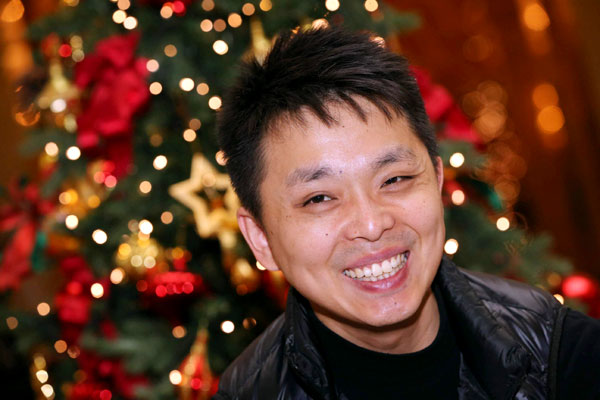

 |
|
Australian-Chinese cellist Li-Wei Qin is confident he is able to convey the emotion in Chinese composers'works through a Western musical form. [Photo by Jiang Dong/China Daily]? |
Cellist Li-Wei Qin's first published recording, when he was 17, was Dvorak's Cello Concerto with the Melbourne Symphony Orchestra.
Now, at 36, Qin has released a new version of the work, with the Singapore Symphony Orchestra and conductor Lan Shui. Released under Decca, this CD is a live recording of a concert in February at the Esplanade Concert Hall in Singapore.
"Recording the work again after so many years feels like seeing an old friend," Qin says. "But this recording is quite different from the last one."
When Qin recorded the work the first time, he was a rising star who had just won the Australian Broadcasting Corporation's 1993 Young Performer of the Year.
"At that time I was afraid of being criticized as being immature, so I deliberately played slowly, maybe a little too slowly," he says. "Now I have both more imagination and control of the sound of the cello."
Born in Shanghai, Qin moved to Australia with his family at the age of 13, before accepting scholarships to study at the Royal Northern College of Music, Manchester and the Guildhall School of Music and Drama, London.
Qin says China, Australia and the UK have all played important roles in making him a musician.
"The strict training at the elementary school attached to Shanghai Conservatory of Music laid a solid foundation for me," he says. "Australia taught me artistic imagination, while the UK provided me with a deep humanistic environment that is necessary for understanding Western classical music."
Qin is now a professor at the Yong Siew Toh Conservatory of Singapore, but he is spending more time in China. Besides teaching at the Shanghai Conservatory and the Central Conservatory of Music in Beijing as a guest professor, he performs in China every year.
This month, he performed Chinese composer Chen Qigang's Reflet d'un Temps Disparu with the China Philharmonic Orchestra in Beijing and Guangzhou Symphony Orchestra in Guangzhou.
As a Chinese musician who lives overseas, Qin believes he is able to convey the emotion of Chinese composers in the Western form such as Chen's works.
Every year Qin performs five to six new works, but he hopes Chinese composers will write more works for cello - not only adaptations of traditional tunes but originals that combine Chinese aesthetics with the Western musical forms.
"Now there are too few of them," he says.
muqian@chinadaily.com.cn